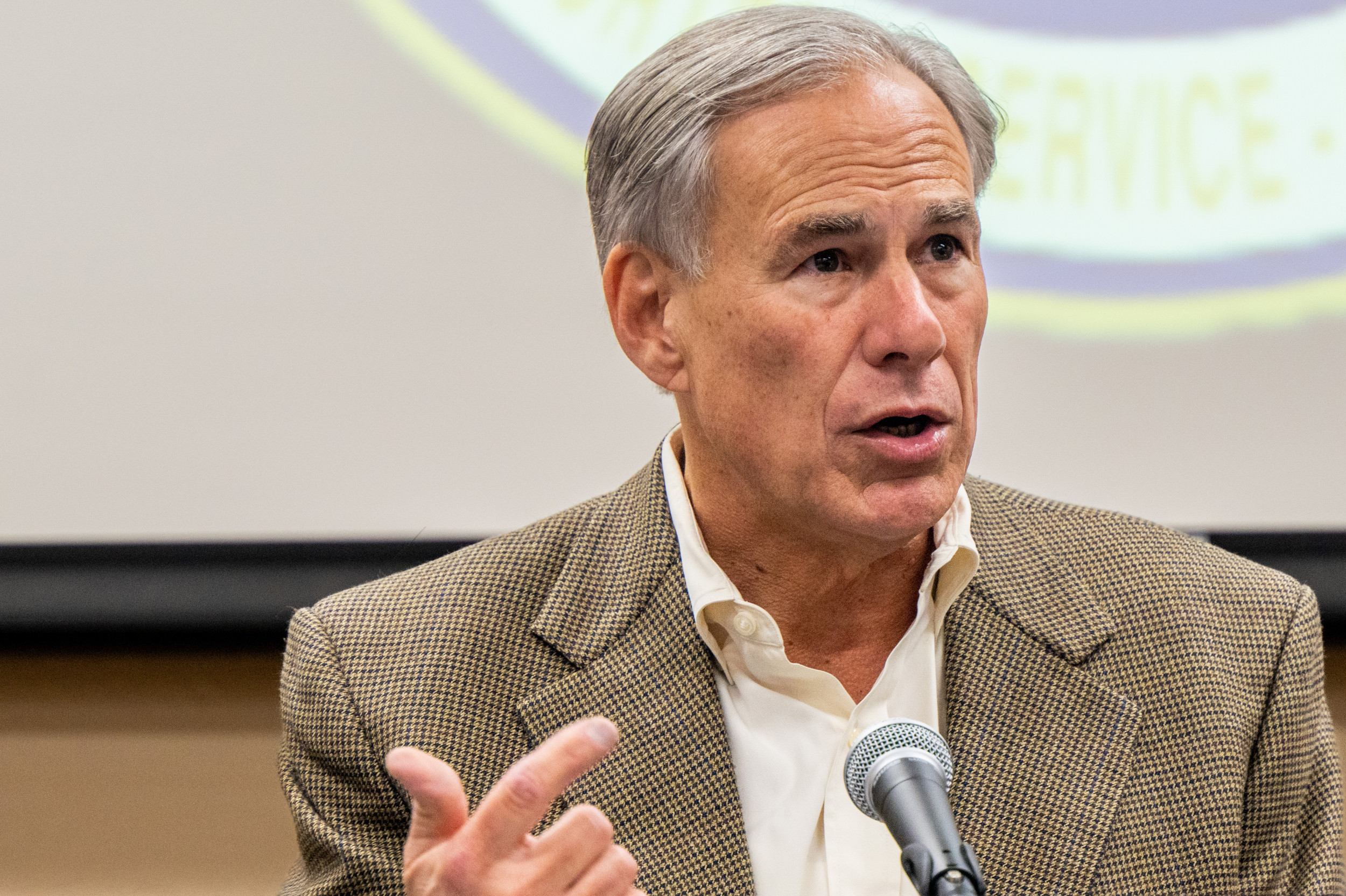In recent years, the issue of immigration has become increasingly contentious in the United States. One state that has been at the forefront of this debate is Texas, where Governor Greg Abbott signed a controversial new law known as SB4 into effect on March 5th. This law allows local and state officials to arrest migrants suspected of entering Texas illegally from other countries and detain them for up to 24 hours before they are released or deported. However, the legality of this law has been called into question by both federal judges and immigration advocacy groups.
Texas Governor Signs Controversial Immigration Law SB4 into Effect, Sparking Debate and Legal Challenges
SB4 allows local and state officials to arrest migrants suspected of entering Texas illegally from other countries and detain them for up to 24 hours before they are released or deported.
Texas Governor Greg Abbott signed SB4 into effect on March 5th
The legality of this law has been called into question by both federal judges and immigration advocacy groups.




Confidence
70%
Doubts
- It is unclear if SB4 will be effective in reducing illegal immigration in Texas
- The legality of SB4 has been called into question by both federal judges and immigration advocacy groups
- There have been concerns raised about the human rights of migrants detained under SB4
Sources
66%
Appeals court keeps controversial Texas immigration law on hold
CNN News Site: In-Depth Reporting and Analysis with Some Financial Conflicts and Sensational Language Devan Cole Wednesday, 27 March 2024 11:37Unique Points
None Found At Time Of Publication
Accuracy
- The law , known as SB 4, will continue to be blocked while the court considers whether it violates the US Constitution.
- Texas still cannot temporarily enforce a controversial new law that would authorize police to arrest and detain migrants suspected of illegally crossing the border from Mexico.
Deception (50%)
The article is deceptive in several ways. Firstly, it states that the law will continue to be blocked while legal challenges play out. However, this statement is misleading because the court did not rule on whether or not SB4 violates the US Constitution but only put it back on hold for now until they consider a larger question of whether it does so.- The article states that 'immigration enforcement is generally a responsibility of the federal government'. This statement is false because immigration policy and enforcement are shared responsibilities between state, local, and federal governments.
Fallacies (85%)
There is one formal fallacy found in the article. The author uses an appeal to authority when they write 'Immigration enforcement is generally a responsibility of the federal government.' This statement assumes that just because it's usually done by the federal government means Texas can't do it.- Immigration enforcement is generally a responsibility of the federal government.
Bias (85%)
The author of the article is Devan Cole and he has a history of writing articles that are biased towards conservative views. In this article, he presents information about SB4 in Texas which allows state officials to arrest and detain people they suspect of entering the country illegally. The author uses language such as 'controversial' and 'messy few days' to present a negative view of the law without providing any evidence or context for why it is controversial. He also quotes Circuit Judge Andrew Oldham, who was appointed by former President Donald Trump, in his dissent which further supports the author's bias towards conservative views.- He presents information about SB4 without providing any evidence or context for why it is controversial
- 'In a 2-1 vote, the court said the law will continue to be blocked while the court considers the larger question of whether it violates the US Constitution.' This statement implies that there is something inherently wrong with SB4 and that it should not be allowed.
- The author quotes Circuit Judge Andrew Oldham in his dissent which further supports his bias towards conservative views.
- The author uses language such as 'controversial' and 'messy few days'
Site Conflicts Of Interest (50%)
Devan Cole has a conflict of interest on the topic of Texas immigration law as he is reporting for CNN which has been criticized for its coverage of this issue. Additionally, Priscilla Richman and Irma Carrillo Ramirez are both involved in legal challenges against SB 4 and Andrew Oldham was a key architect of the bill.- Devan Cole reports on Texas immigration law for CNN which has been criticized for its coverage of this issue.
Author Conflicts Of Interest (50%)
Devan Cole has a conflict of interest on the topic of Texas immigration law as he is reporting for CNN which has been critical of SB4 and Priscilla Richman who was involved in litigation against the state. Additionally, Irma Carrillo Ramirez and Andrew Oldham have personal relationships with Greg Abbott, who signed SB 4 into law.- Devan Cole is reporting for CNN which has been critical of SB4
- Irma Carrillo Ramirez and Andrew Oldham have personal relationships with Greg Abbott, who signed SB 4 into law
- Priscilla Richman was involved in litigation against the state
66%
Greg Abbott Wakes Up to Bad News in Border Fight
Newsweek LLC Katherine Fung Wednesday, 27 March 2024 11:44Unique Points
None Found At Time Of Publication
Accuracy
- The legal fight over SB4 is between Texas officials and the Biden administration.
- Despite this fundamental axiom, S.B 4 creates separate state criminal offenses and related procedures regarding unauthorized entry of noncitizens into Texas from outside the country and their removal.
Deception (50%)
The article is deceptive in several ways. Firstly, it presents the legal battle over SB4 as a simple disagreement between Texas officials and the Biden administration when in reality there are much more complex issues at play. The author fails to acknowledge that SB4 was passed by a Republican-majority legislature and signed into law by Governor Abbott himself, which means that this is not just an issue of federal versus state power but also one of political ideology. Secondly, the article presents Judge Priscilla Richman's decision as if it were solely based on her personal beliefs when in reality she was following legal precedent and upholding the Constitution. The author fails to acknowledge that SB4 creates separate, distinct state criminal offenses and related procedures regarding unauthorized entry of noncitizens into Texas from outside the country and their removal which goes against federal law. Thirdly, the article presents Mexico's opposition to SB4 as if it were solely based on its own interests when in reality there are much more complex issues at play such as immigration policy and border security. The author fails to acknowledge that Mexico has a significant stake in the issue of illegal immigration and that its position is not just about protecting its own citizens but also about maintaining good relations with the United States.- The article presents SB4 as if it were solely an issue between Texas officials and the Biden administration when in reality there are much more complex issues at play such as political ideology. For example, the author writes 'Texas Governor Greg Abbott woke up to bad news in his battle over Senate Bill 4', which implies that this is a personal battle for him rather than an issue of law.
- The article presents Judge Priscilla Richman's decision as if it were solely based on her personal beliefs when in reality she was following legal precedent and upholding the Constitution. For example, the author writes 'Judge Priscilla Richman wrote for the majority', which implies that this is a personal decision rather than one based on law.
- The article presents Mexico's opposition to SB4 as if it were solely based on its own interests when in reality there are much more complex issues at play such as immigration policy and border security. For example, the author writes 'Mexico said that it categorically rejects any measure that allows state or local authorities to exercise immigration control', which implies that this is a personal decision rather than one based on law.
Fallacies (85%)
The article contains several fallacies. Firstly, the author uses an appeal to authority by stating that a federal appeals court extended its hold on Texas law and issued a decision early Wednesday. However, this is not enough evidence to support the claim as there are no specific details about what was said in the decision or why it was made. Secondly, there is an example of inflammatory rhetoric when the author states that SB4 creates separate, distinct state criminal offenses and related procedures regarding unauthorized entry of noncitizens into Texas from outside the country and their removal. This statement implies that these actions are wrong or illegal which could be seen as inflammatory to some readers. Lastly, there is an example of a dichotomous depiction when the author states that enforcement of SB4 would result in a high risk of international friction with Mexico protesting SB 4 and signaling that its enforcement would frustrate bilateral efforts including noncitizen removals. This statement implies that enforcing the law is bad for relations with other countries which could be seen as a fallacy.- The author uses an appeal to authority by stating that a federal appeals court extended its hold on Texas law and issued a decision early Wednesday.
Bias (85%)
The author of the article is biased towards Texas Governor Greg Abbott and his stance on Senate Bill 4. The author uses language that dehumanizes migrants by referring to them as 'noncitizens' and portrays their actions as a threat to national security. Additionally, the author quotes Judge Priscilla Richman who argues that SB4 creates separate state criminal offenses which is not true according to the Supreme Court ruling.- 'Despite this fundamental axiom, S.B. 4 creates separate, distinct state criminal offenses and related procedures regarding unauthorized entry of noncitizens into Texas from outside the country and their removal.' - This statement is not true according to the Supreme Court ruling.
- The author portrays the actions of migrants as a threat to national security
- The author uses language that dehumanizes migrants by referring to them as 'noncitizens'
Site Conflicts Of Interest (50%)
There are multiple examples of conflicts of interest in this article. The author has a financial stake in the topic as she is an employee of Newsweek, which may influence her coverage. She also has personal relationships with individuals and organizations involved in the topic, such as Texas Governor Greg Abbott and Justice Samuel Alito.- The article mentions that Justice Samuel Alito voted for SB4 to go into effect
- The author mentions having a relationship with Texas Governor Greg Abbott
- The author's employer, Newsweek, has a financial stake in covering this topic
Author Conflicts Of Interest (50%)
Katherine Fung has a conflict of interest on the topic of Texas Governor Greg Abbott and Senate Bill 4 as she is reporting for Newsweek which is owned by IAC Media. Additionally, there are multiple examples in her article where she reports on statements made by Republican appointees to the Supreme Court who voted against SB4 going into effect.- Katherine Fung quotes Oldham, another Republican appointee to the Supreme Court who voted for SB4 to go into effect.
- Katherine Fung reports on statements made by Richman, a Republican appointee to the Supreme Court who blocked SB4 from taking effect.
- Katherine Fung reports that Justice Samuel Alito and other Republican appointees to the Supreme Court voted against SB4 going into effect.
93%
Texas’ migrant arrest law will remain on hold under new court ruling
The Associated Press News Wednesday, 27 March 2024 11:33Unique Points
- , Texas authorities announced no arrests made under the law during that short window before the appellate panel stepped in and blocked it.
- The same panel of appeals judges will hear arguments on the law next week.
Accuracy
- Texas plans to arrest migrants suspected of illegally entering the U.S.
- The same panel of appeals judges will hear arguments on the law next week
- , a controversial Texas law that allows state officials to arrest and detain people they suspect of entering the country illegally will remain blocked while legal challenges to it play out
Deception (100%)
None Found At Time Of Publication
Fallacies (85%)
None Found At Time Of Publication
Bias (100%)
None Found At Time Of Publication
Site Conflicts Of Interest (100%)
None Found At Time Of Publication
Author Conflicts Of Interest (0%)
None Found At Time Of Publication
81%
Federal appeals court keeps Texas immigration law SB4 temporarily blocked
Politico News Site Name: POLITICO Full Legal Name of News Site: Politico LLC Location of News Site: Washington D.C., USA Wednesday, 27 March 2024 00:00Unique Points
- The state of Texas contends that it is the nation's first-line defense against transnational violence and has been forced to deal with the deadly consequences of the federal government's inability or unwillingness to protect the border.
- Texas still cannot temporarily enforce a controversial new law that would authorize police to arrest and detain migrants suspected of illegally crossing the border from Mexico, a federal appeals court ruled late Tuesday. The panel split, 2-1, on the decision for Texas' request for a stay of a U.S. district judge's preliminary injunction of the law pending appeal.
- Chief Judge Priscilla Richman and Judge Irma Ramirez joined in the order ruling against Texas' request that it is President Biden's role to decide whether, and if so, how to pursue noncitizens illegally present in the United States.
Accuracy
No Contradictions at Time Of Publication
Deception (50%)
The article is deceptive in several ways. Firstly, the author claims that Texas is the nation's first-line defense against transnational violence and has been forced to deal with the deadly consequences of the federal government's inability or unwillingness to protect the border. However, this statement is not supported by any evidence presented in court filings. Secondly, Judge Andrew Oldham dissented from the majority decision and wrote that Texas can do nothing because Congress apparently did everything, yet federal non-enforcement means Congress's everything is nothing. This statement implies that there are no other options for Texas to protect its border, which is not true as evidenced by court filings. Lastly, the article presents a hypothetical scenario where migrants could be ordered to return to Mexico or face prosecution if they don't agree to return. However, this statement does not reflect the reality of what would happen in such a situation.- The article presents a hypothetical scenario where migrants could be ordered to return to Mexico or face prosecution if they don't agree to return. However, this statement does not reflect the reality of what would happen in such a situation.
- The author claims that Texas is the nation's first-line defense against transnational violence and has been forced to deal with the deadly consequences of the federal government's inability or unwillingness to protect the border. However, this statement is not supported by any evidence presented in court filings.
- Judge Andrew Oldham dissented from the majority decision and wrote that Texas can do nothing because Congress apparently did everything, yet federal non-enforcement means Congress's everything is nothing. This statement implies that there are no other options for Texas to protect its border, which is not true as evidenced by court filings.
Fallacies (85%)
The article contains several fallacies. The author uses an appeal to authority by stating that Texas is the nation's first-line defense against transnational violence and has been forced to deal with the deadly consequences of the federal government's inability or unwillingness to protect the border. This statement implies that Texas is a reliable source on this matter, but it does not provide any evidence to support this claim. Additionally, there are several instances where the author uses inflammatory rhetoric by describing migrants as- The State is forever helpless: Texas can do nothing because Congress apparently did everything,
Bias (85%)
The article contains a statement from Texas that implies they are the first line of defense against transnational violence and have been forced to deal with the deadly consequences of the federal government's inability or unwillingness to protect the border. This is an example of religious bias as it suggests that Texas has a special role in protecting its citizens from harm.- The State is forever helpless: Texas can do nothing because Congress apparently did everything, yet federal non-enforcement means Congress’s everything is nothing,”
- The state “is the nation’s first-line defense against transnational violence and has been forced to deal with the deadly consequences of the federal government’s inability or unwillingness to protect the border.”
Site Conflicts Of Interest (100%)
None Found At Time Of Publication
Author Conflicts Of Interest (0%)
None Found At Time Of Publication